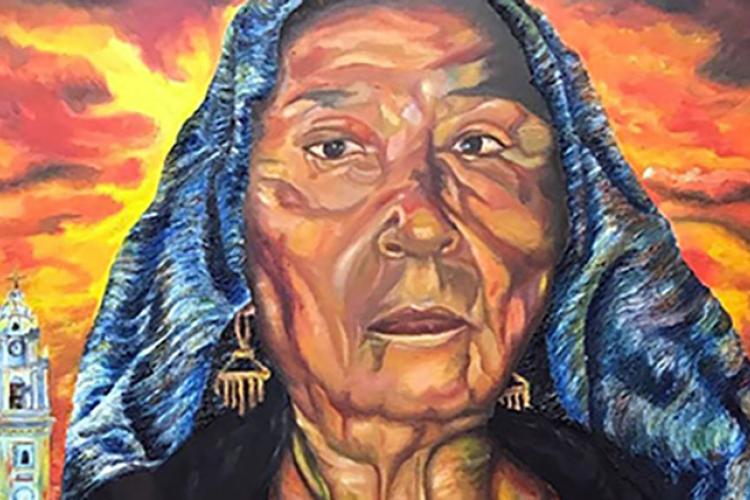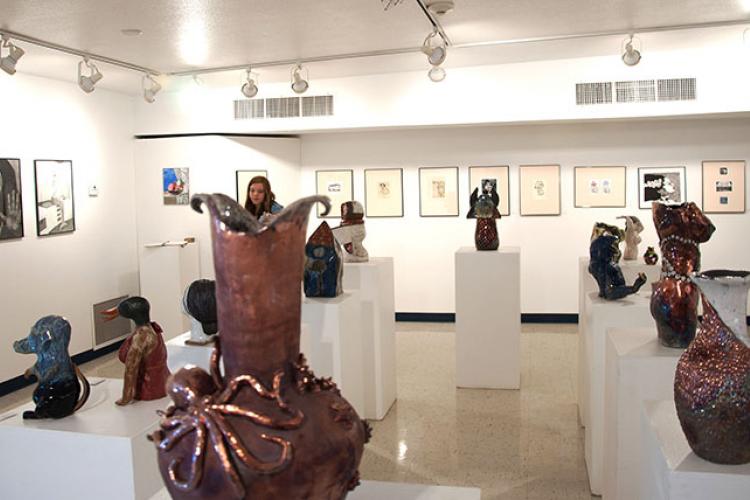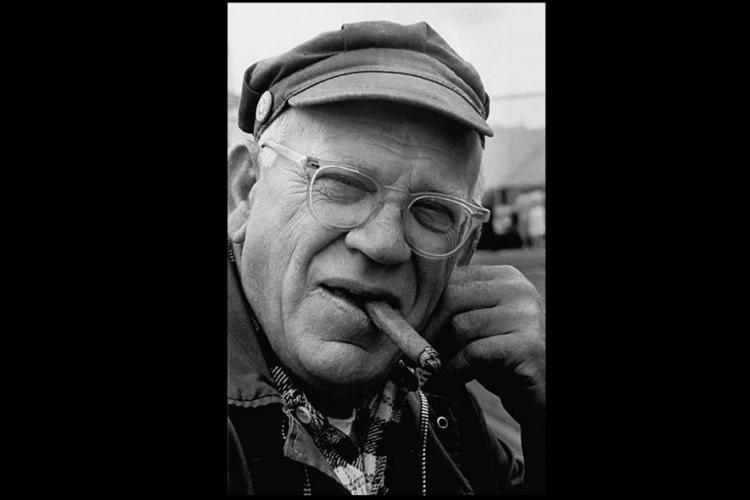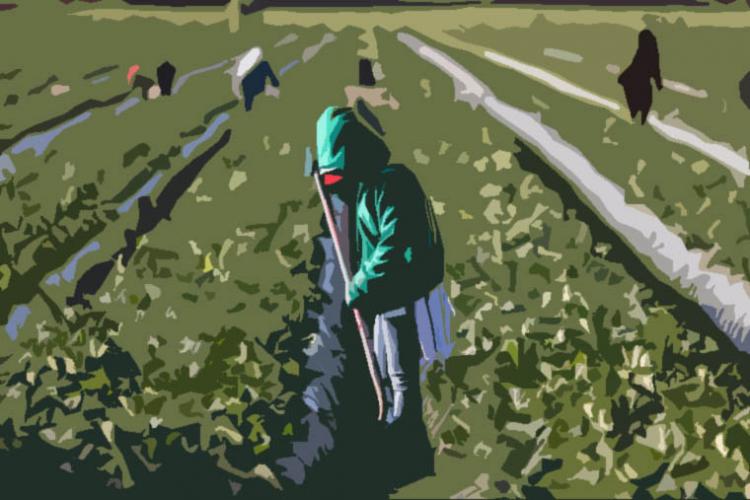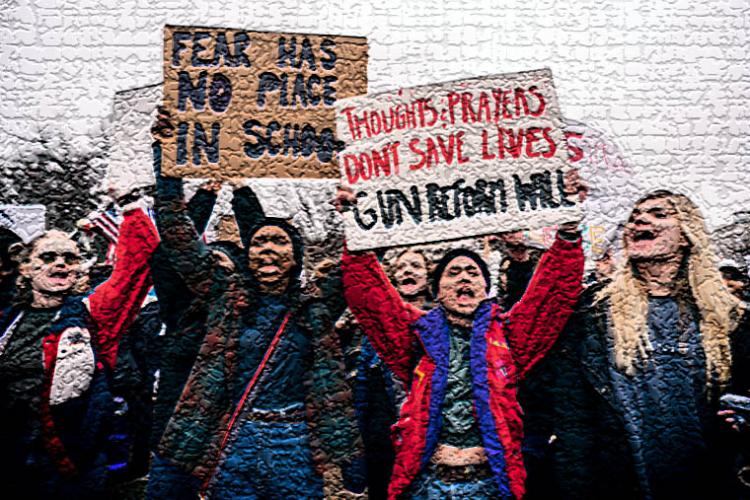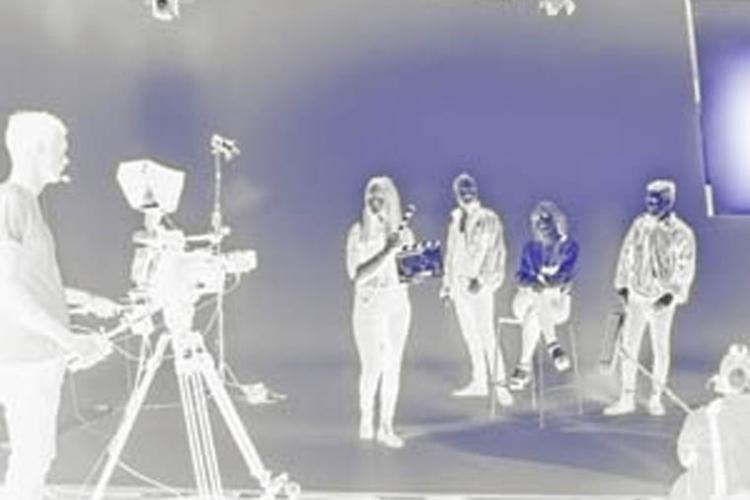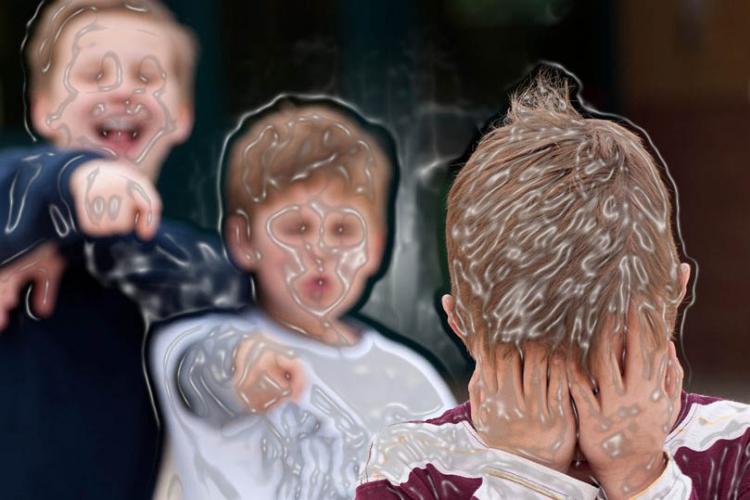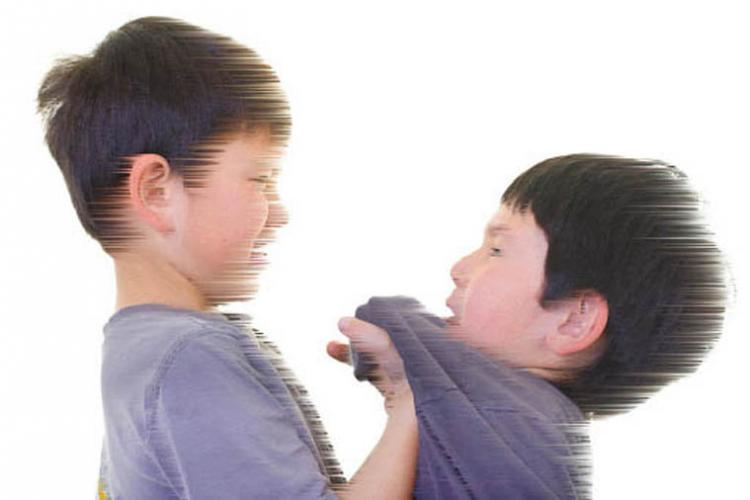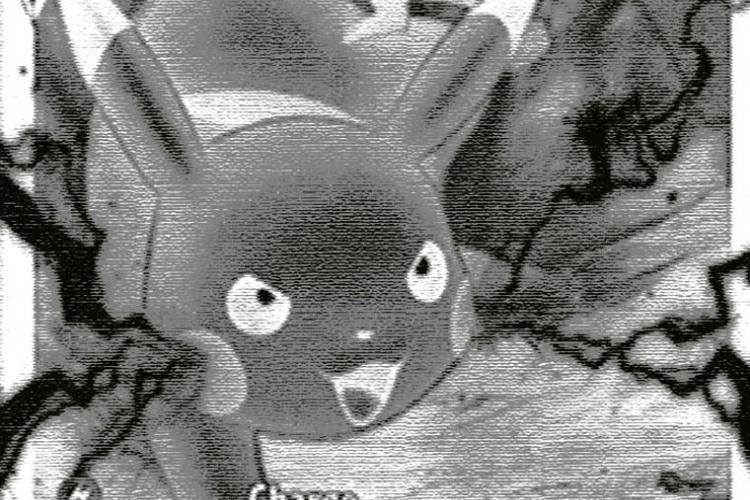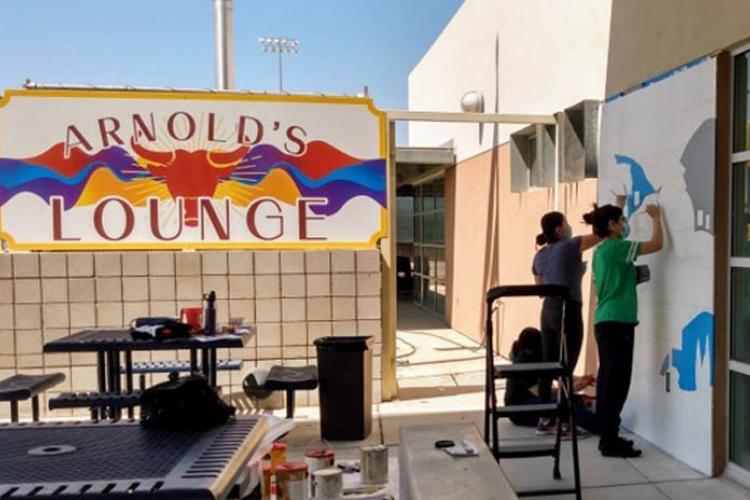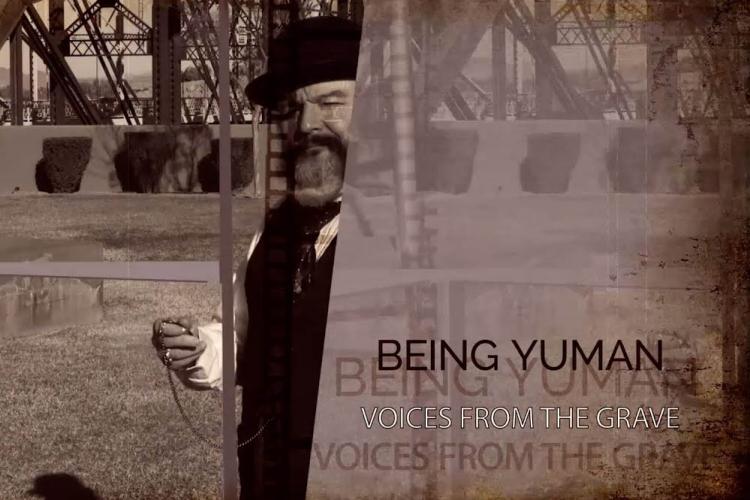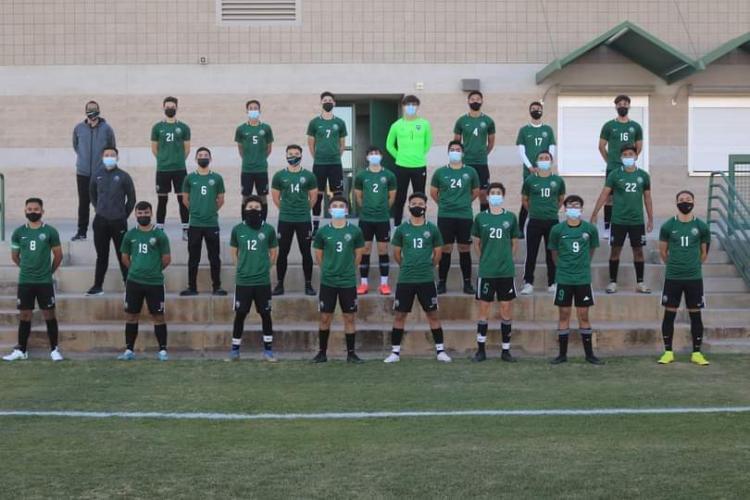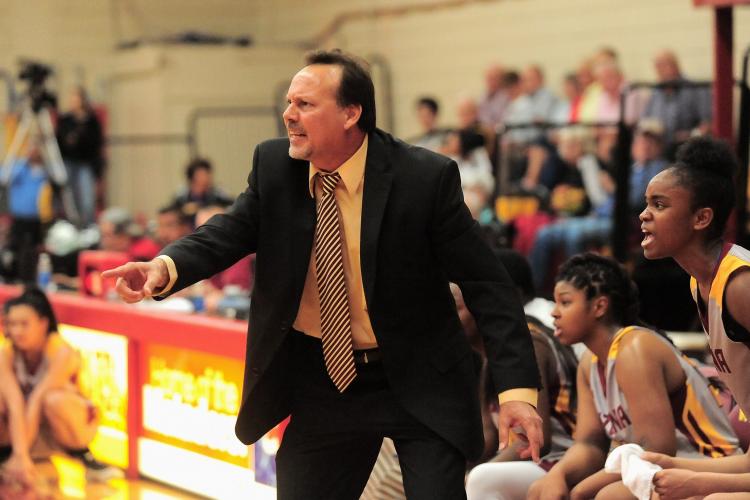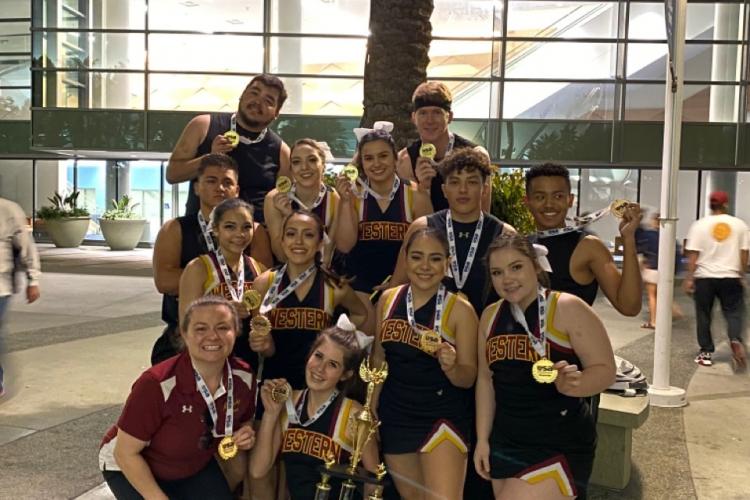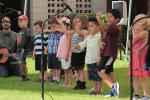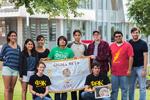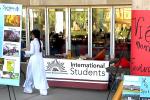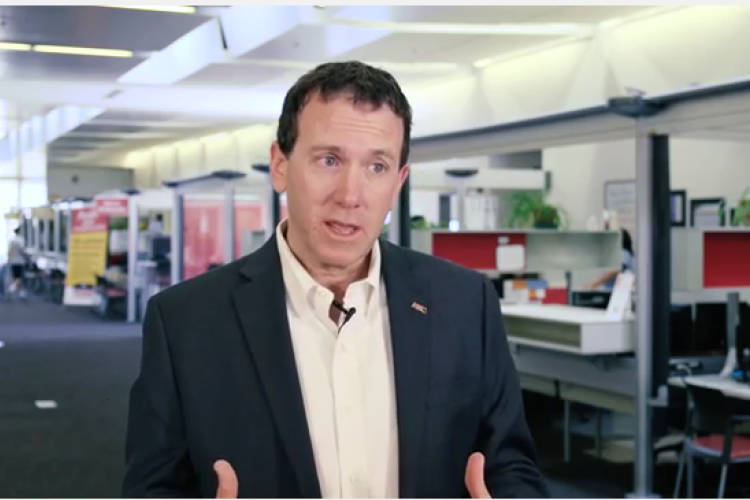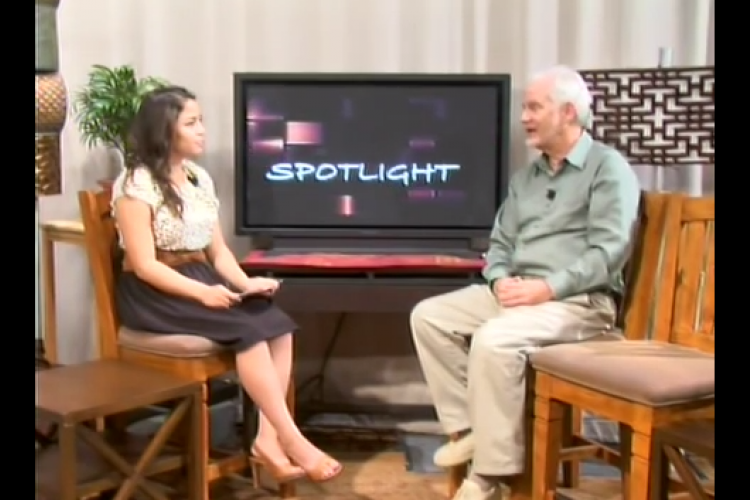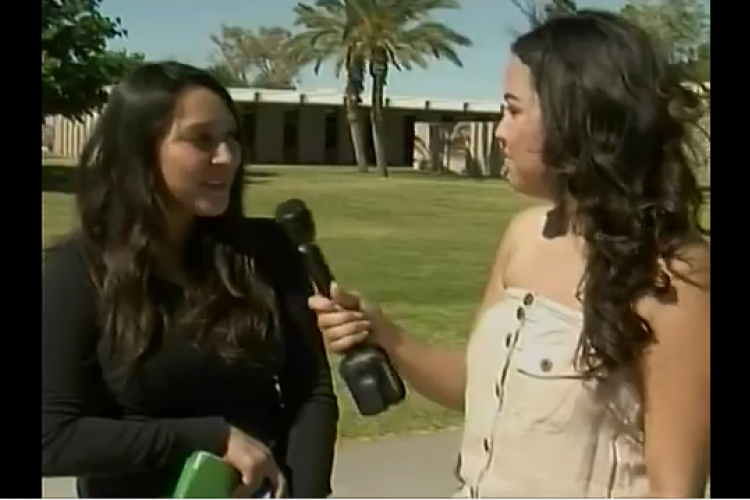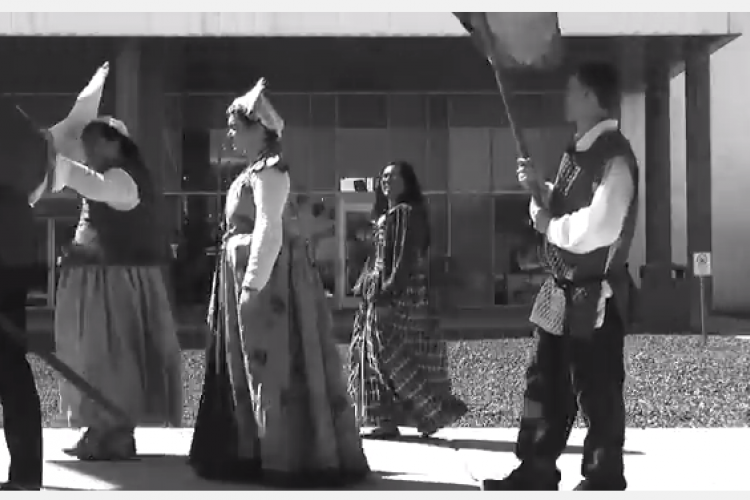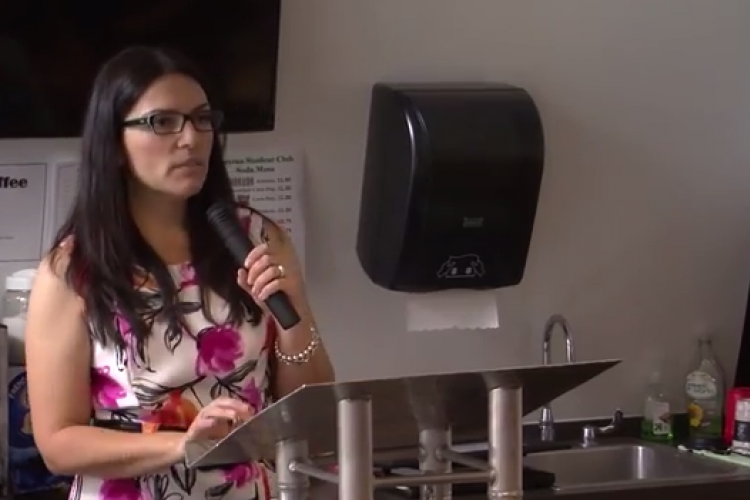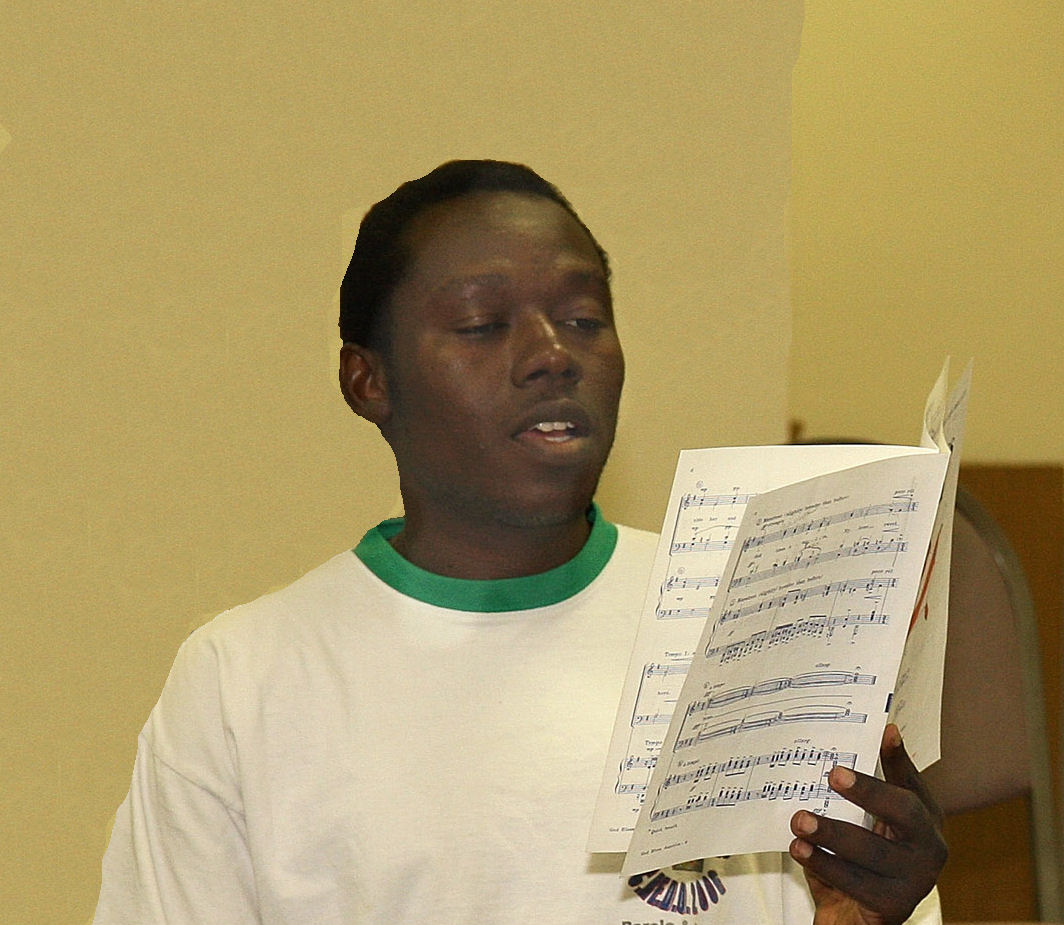
In late October, 88 students gathered at the Desert Outdoor Center at Lake Pleasant for a three-day retreat to experience workshops and activities designed to promote intercultural communication and conflict resolution skills. The students ranged from ten Arizona community colleges, other campuses around the U.S., as well as approximately twenty other countries. Five students attended from Arizona Western College.
The AWC students that attended the retreat were international students: Zama Ouedraogo from Burkina Faso (West Africa), who is studying economics; Tam Dang from Vietnam, a SGA Representative; and Beatrice Laizer from Tanzania, who is studying law with the purpose of returning to her work in community development and advocacy for her tribe, the Maasai. The other two also were Student Government Association officers -- President Azucena Gonzalez and Representative Cindy Castillo, who is also a member of the KEYS club.
Creative exercises
After an hour of getting to know each other, the group was randomly divided into ten gender-balanced groups. Their first task was to create their ideal country. They were given a map which, unknown to them, was a piece of a larger puzzle that represented one land area on a fictional continent. They were instructed to give their country a name and assign demographics, economics, a system of government, geographical features, language, religion, resources and culture. They created a travel poster, a national flag, and they composed a national anthem. Some fashioned costumes.
Then, each group presented their country to the larger group. One the most striking aspects of this workshop was how the students readily identified with the country they had created. The names often reflected the individuals or their countries of citizenship, but their new creations took on a life and spirit of their own in a very moving way.
Contrasting cultures
After dinner, Dr. Pan, president of Mesa Community College, spoke with students about the dynamics of trust in leadership, followed by an evening workshop of a cultural learning game called BaFa BaFa, facilitated by Dr. Jim Reed, professor of communications at Glendale Community College, and his wife, who have worked together and delivered this workshop for many years. The students were divided into two groups, the Alphas and the Betas. Each was given an elaborate scheme of values, communication norms and objectives involving a simple card game. After learning their "culture," each group sent representatives to visit and observe the other, and report back. They then participated in several "cultural exchanges" with small groups visiting the other culture.
The constructs of these cultures were designed to be in contrast and opposition in terms of style, norms, values and communication styles. The Alphas, a collectivist culture -- group oriented and patriarchal, with very protective feelings regarding "their women" -- were told that they could freely share their cards to help their teammates achieve needed balance. The Betas, individualistic and highly competitive, were informed that, if they achieved a goal of obtaining a specific set of cards, they would win prizes -- thereby motivating a businesslike and acquisitive society. The resulting exchanges generated confusion, misunderstanding, frustration and even some hostility between the groups as they attempted to interact.
Explanations and choices
To complete the learning experience, the groups assembled and faced each other as Dr. Reed and his wife facilitated a debriefing where members of each "society" could ask questions and give explanations of their behavior. As the students began to discover and understand the underlying values, assumptions, styles, and motivations of the other group, they came to realize why it was so difficult to communicate and understand each other. As a result, students discovered how behavior is strongly influenced by culture, and how cultural differences can so easily influence new relationships. The insights were profound, personal and deeply experiential.
After coming to understand the focus of this exercise and the basis for the strange interaction they experienced, students were asked the question, "If you could choose to move to the other culture, would you?" Several of the Betas did decide they preferred the collectivist-sharing Alpha culture. One Alpha, a Vietnamese male, chose to move to the Beta group because he preferred the goal-oriented, merit-based system. A young man from West Africa chose to stay with the Beta group even though he preferred the Alpha culture, because he believed he could be a moderating influence.
Before retiring for the evening, students and staff gathered to continue their discussions, many around the roaring campfire on the terrace overlooking the lake below and the mountains on the distant horizon, surrounded by the silhouettes of stately suguaro cactus against the star-filled Arizona sky.
New crisis
Saturday morning began early with nearly half of the students participating in a planned hike or a yoga session on the terrace as the rising sun streaked across the distant peaks. After breakfast, students engaged in a workshop designed to help them understand their individual negotiation styles to resolve conflicts in an intercultural context. As the workshop progressed, MCGLR staff reviewed the results of the Ideal Country exercise, identifying weaknesses and vulnerabilities to create a scenario of integrated conflict. Students were then assembled and given instructions to take detailed notes on the sudden development of "bad news" -- for example, border disputes, natural disasters, environmental breakdowns, conflicts over resources and cultural clashes that had "developed overnight." They were then told that they had the next few hours to try and come up with solutions to these conflicts.
Surprised and stunned, students gathered into their "countries" and took the complex conflict scenario into consideration. They worked together to analyze their new situations and began to send out ambassadors to begin negotiations with those other countries to find solutions. They worked through a pizza lunch, gathering around the negotiating tables that sprang up in various breakout rooms and began drawing up agreements to establish plans and procedures to bring about sustainable peace and prosperity to their imaginary utopias.
After this intense period of analysis and negotiation, the students assembled in the hall, and each country was given ten minutes to report on their solutions. Creative treaties had been written and signed, including trade agreements for goods and services, border agreements and non-aggression pacts. One of the more amazing outcomes was a global mutual aid treaty, which the students designed and all countries signed.
Granted, this imaginary world could be stabilized in a matter of hours by imaginary solutions. The experience, however, was designed to enable students to put leadership skills -- analysis, creative thinking, negotiating through engagement, discussion, accommodation and dynamic conflict resolution -- into practice in a virtual setting. However limited these experiences and exercises may have been, they provided a dynamic beginning for future leaders to hone the skills needed to build trusting relationships and cross-cultural understanding. The desired outcomes were measured through pre- and post-assessments and showed a general and significant increase in confidence, skillful interaction, global perspective and the ability to empathize with the other's point of view. The capacities that were being focused and nurtured in this virtual, imaginary setting will serve these young people as they move forward in their careers and conceivably become effective global leaders of tomorrow.
Sharing culture
Soon after peace and prosperity were established in their imaginary world, students were presented with yet another challenge. They came to the retreat prepared to share something of the culture to which they identify, and Saturday afternoon was the time to establish a creative group to bring some aspect of that very loosely defined culture to the stage in an evening show of mutual entertainment. Defining culture in the broadest sense, students grouped around diverse artistic endeavors, common narratives and ethnic heritage. For the next couple of hours, these new groups gathered costumes, arranged music, wrote scripts, choreographed movements and rehearsed lines. As the setting sun cast deepening rosy shadows across the mountains and lake in the distance, the students and staff gathered for a group photo and then prepared for the performances of Culture Night.
The opening act began with grace and humor, a skit showing what it might be like if a student returned to his African Village with his new friend from the U.S. -- a white man who wished to marry his black cousin. Each of the ten performances that followed seemed to add to the levels of self reflection and disclosure, rousing entertainment, unbridled joy and mutual appreciation. A mysterious collective emotion and energy arose and eventually erupted into spirited and spontaneous dancing and singing that was both infused by and an expression of a primal solidarity or unity.
The next morning the intrepid early risers met for fruit and coffee or tea. Some followed along for a sunrise hike while others performed yoga in the gentle morning light. After breakfast, a debriefing session and general discussion was facilitated by a former participant, now returning as a professional consultant. Students were encouraged to reflect upon all they had learned and experienced throughout the weekend.
Finally, bags were packed and good-byes were said and busses departed. But all participants carried away memories of a unique experience in learning that will likely change their lives.

